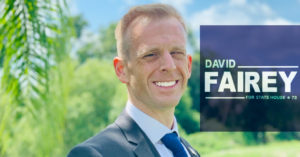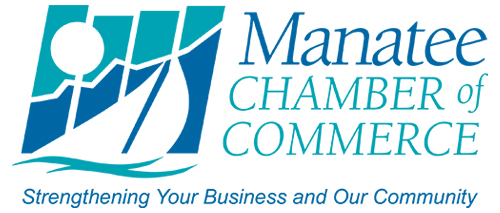David Fairey
Candidate: Representative District 73
 Q. What are the top 3 issues facing Florida as a whole, but, in particular, our region?
Q. What are the top 3 issues facing Florida as a whole, but, in particular, our region?
A. (1) The health and economic impacts of the pandemic and the exposure of structural issues in our health, social, and public education systems; (2) The growing economic and health impacts of climate change; (3) Gun safety reforms are clearly needed and favored by a majority of Floridians.
Q. Anticipating a decline in revenue during upcoming fiscal years for Florida, how would you address budget shortfalls? What are your priorities within a decreased budget?
A. I recently wrote a paper on this subject and present a plan for both short and long term sustainable state financing that serves people, rejects austerity, protects businesses, and leverages our states massive economic power while also rejecting the idea the only way to have liquidity is to raise taxes. As a financial professional, both as a CFO and a CPA, I know, and the data make clear, austerity is the wrong path and leads to prolonged economic hardship. We cannot cut our way to growth.
There are significant steps we can take today that will immediately increase revenue as well. If we expand Medicaid, it will not only cover one million people who currently do not have access to affordable healthcare, but it will also increase the state’s revenue by around one billion dollars. We can also pursue better enforcement practices of our current laws that are estimated to be worth more than $5 billion. And still, there are more simple steps that clearly show the argument of needing to cut anything is not made in good faith.
Q. Transportation continues to be an issue, both in terms of existing options as well as long-term planning and projects. What are your top 2 transportation priorities in our region and how would you fund them?
A. Modern public transportation systems are essential as this area continues to grow. We need investment in regional public transportation which will relieve congested highways. Smart and sustainable planning is must also be a focus and require developers to be more accountable for all the impacts their projects have on the environment and traffic within the region. We must mandate greater holistic plans that anticipate long term needs.
Q. In Florida, and especially in our area, water quality is an essential part of our economy and quality of life. What can the Legislature do to address water quality?
A. We can invest in better water treatment processes and infrastructure. We must also hold polluters accountable for the damage they are doing to our water and protect this precious resource going forward. We can also ban the use of agents known to be the greatest offenders, especially for which there are viable alternatives. Water protection must also be an element of better managed-growth plans.
Q. As businesses move to recover and build the economy, what are some strategies that you would support that positively impact these businesses both now and in the future?
A. Businesses that support Florida’s path to using renewable energy and are in emerging sectors should be incentivized to come. Florida must adapt to attract modern businesses to settle in the state by rejecting the outmoded austere framework that makes it a less desirable state for working families. This means having a state that invests more in its students than its prisoners. A state that is one of the few to have a growing number of uninsured children. We must address the social and economic inequities our state perpetuates if we hope to move beyond the “good old boys club” and attract modern businesses that will sustain this state for the next century.
